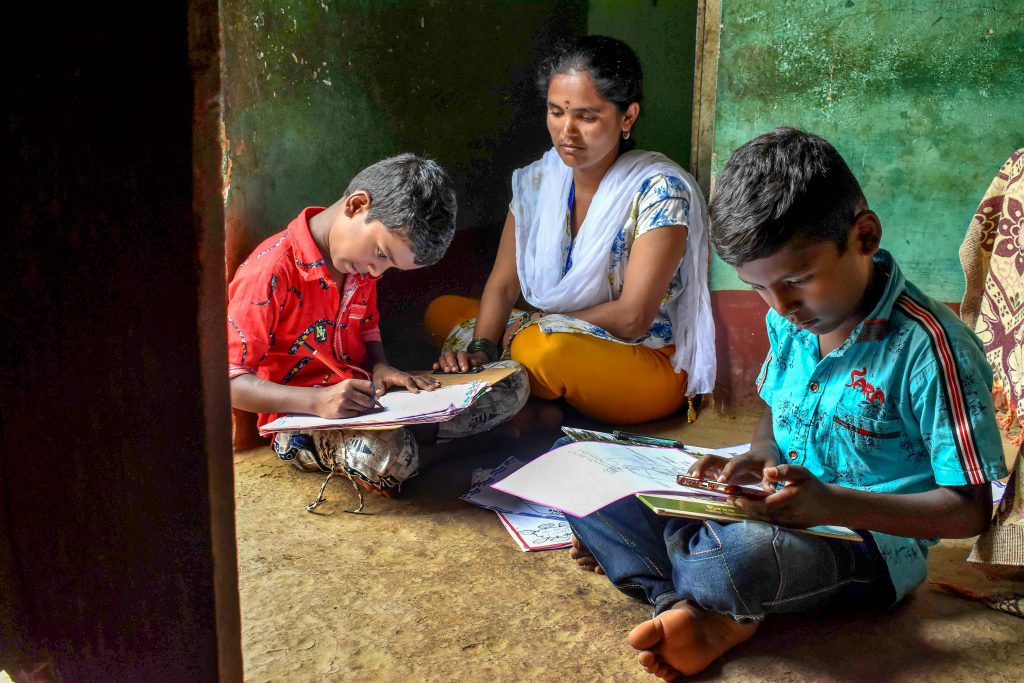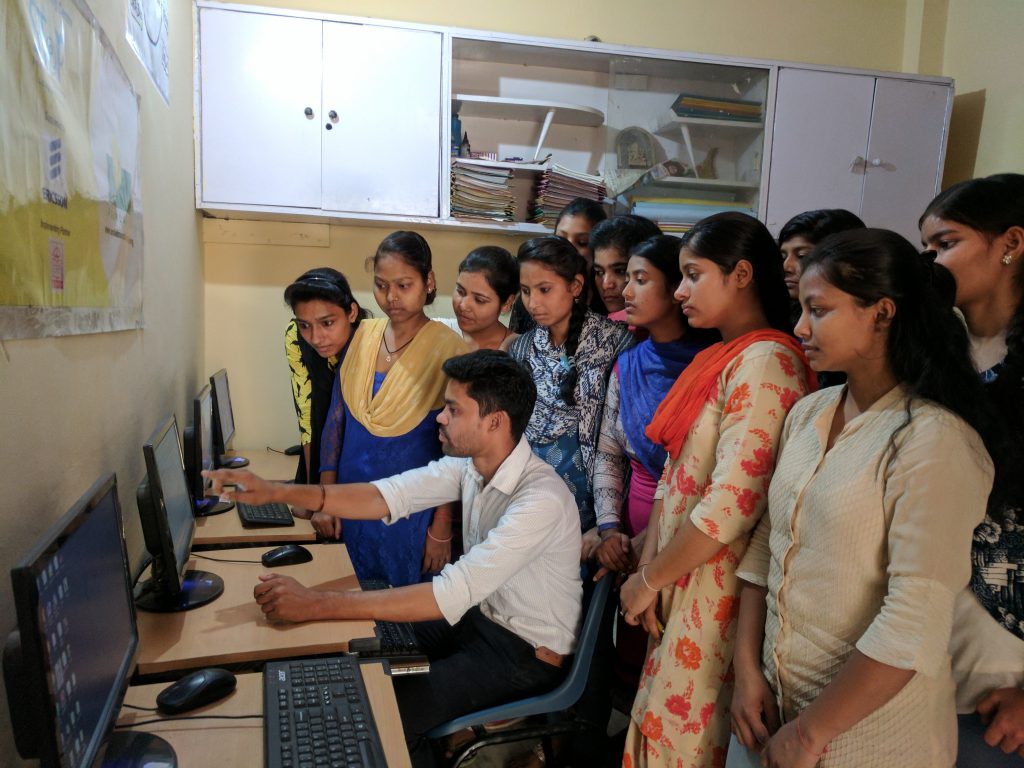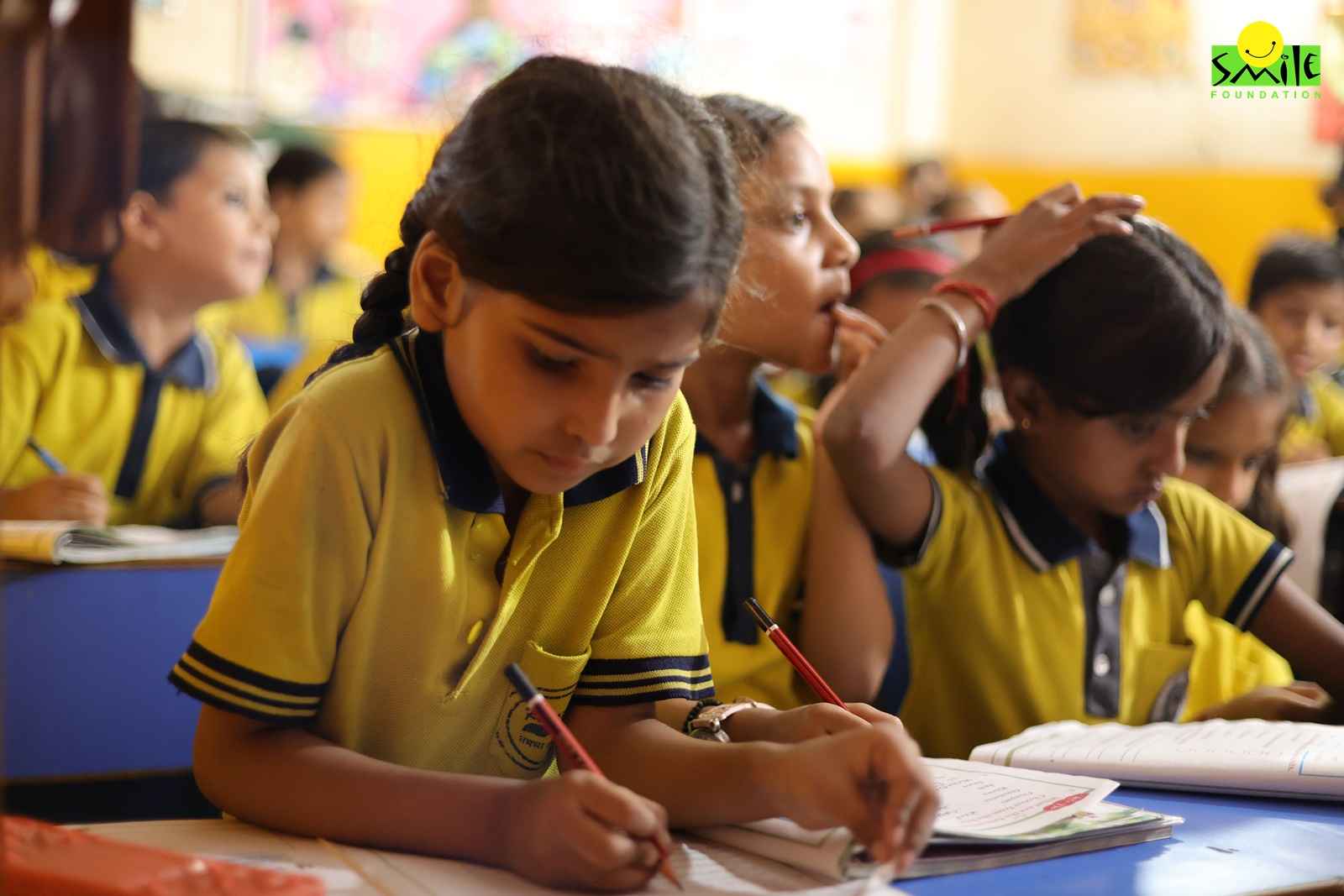Education is an important component for the growth of a society. In India a number of children are deprived of education, most drop out due to poverty and girls seldom get a chance. It has become important for educational NGOs in India to intervene to reach the most remote areas and urban slums where the migrant population reside. According to The National Sample Survey Organization’s 2017-18 household survey there are 3.22 crore out-of-school children in India (6-17 years). Seasonal migration, child labor, poor infrastructures of schools, lack of teachers, distance, lack of resources at home and illiterate parents are the major causes of children dropping out of school or not opting to go to school at all. When the pandemic hit the world at the beginning of 2020, it gave rise to more problems in education; confusion regarding continuation of schools amid strict lockdown rules, losing out on learning due to lack of access to online classes hit the underprivileged the most.
Educational NGOs in India work together with the government to realize the objective of universalization of Elementary Education. NGOs have a tendency to work in the grassroots of the society, in small locations to first achieve the impact on ground. Based on the principle of people’s participation NGOs work to improve education, social welfare, reduce poverty, and develop civil society. NGOs can be seen as alternative agencies which are working on ground to promote awareness, sensitize and to bring a change and improvement in society.
The major objectives of educational NGOs in India are to increase the number of school going children,developing other learning skills in local schools & communities, provide inclusive education to children with special needs and work as a catalyst to bring sustainable change in the lives of the children with a life-cycle approach of development.

Smile Foundation, one of the top educational NGOs in India is reaching children through its education programme Mission Education. Mission Education, started in the year 2002 has so far benefitted more than 232,000 underprivileged children. Through more than 240 centers across 23 states Smile Foundation is not just reaching the children but also the communities in which the children live. Through regular interactions parents are sensitized about the need and importance of education for boys and girls, abolishing child labor, opting for healthier habits. Community mobilizers and volunteers regularly visit these children to check on their progress and extra classes are provided to those students who face difficulties with their lessons. When schools were shut down to stop the spread of Covid-19, teachers from Mission Education children ensured through their hard-work and dedication that no child was left behind in their journey of learning. Parents were taught to assist their children to attend online classes. In remote rural areas of states like Rajasthan, West Bengal and Karnataka where people belonged to the most underserved sections cluster classes were introduced for children to continue their education.
The importance of educational NGOs in India like Smile Foundation is immense as NGOs can change the face of India in the fields of primary and secondary education. It is the duty of every member of the society to contribute to the cause to make the initiatives of the NGOs successful and enable change in the society.










One reply on “Importance of Educational NGOs in India”
Happy to know about your efforts in education and it’s quality.
Actually I am an research scholar from Pune University where I am doing my research on Role of NGO in educational policy making scene independence.
So I am very much ok intrested to know amore about your policy level interventions